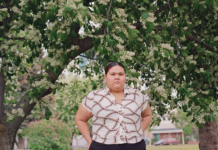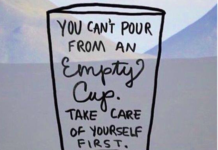On Psychology Today, Tiani Perkins has this interview with child and adolescent psychologist Marsheena Murray on the role of trauma and systemic factors in affecting the mental health of foster kids, particularly racially marginalized youth—and on the importance of culturally sensitive counseling:
“Approximately 60 percent of the over 425,000 children in the United States foster care system will experience mental health struggles, including depression, anxiety, post-traumatic stress disorder, and other behavioral problems.
Community stressors, such as chronic trauma, poverty, and lack of social support, compound these psychological struggles.
There is an overrepresentation of racially marginalized youth in the U.S. foster care system. Black and Hispanic children represent approximately 44 percent of foster children despite comprising only 32 percent of the population. Scholars highlight two main drivers for these historic discrepancies: sociodemographic factors (e.g., socioeconomic status, race, and gender) and systemic discrimination.
To understand how some institutions have addressed the needs of racially marginalized foster children, I interviewed the Director of Behavioral Health for the Foster Care Program in the MetroHealth System, Marsheena Murray. . . .
Dr. Murray and her team address the unique needs of racially marginalized foster children through a critical awareness of the systemic and institutional factors that influence their experiences in the system. For instance, racial minority children are more likely to be reported for “destructive” behaviors (e.g., belligerence and rowdiness) compared to their White peers. These discrepancies contribute to the disproportionate number of foster children referred for punitive interventions for first-time offenses.
These consequences both contribute to and are a product of the school-to-prison pipeline. As early as pre-K, racially marginalized children, especially Black males, may be alienated from academic domains through excessive exclusionary discipline (e.g., detention and expulsion for minor offenses). Racialized youth are also more likely to be separated from their biological family, with devastating consequences for mental health and life-long happiness.”
Article → ***
***
More from Around the Web
More from Mad in the Family














